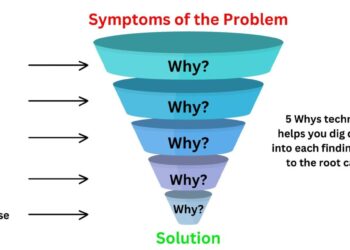How To Recession-Proof Your Finances is an essential guide for anyone looking to safeguard their financial well-being during uncertain economic times. In a world where recessions can strike unexpectedly, understanding the characteristics and impacts of such downturns is crucial. This guide will delve into practical budgeting strategies, ways to diversify income streams, and the importance of building an emergency fund to ensure financial resilience.
By equipping yourself with the right knowledge and tools, you can navigate through financial challenges with confidence and emerge stronger on the other side. Let’s explore how to prepare for and thrive during economic instability.
Understanding Economic Downturns
Economic downturns, particularly recessions, can have profound effects on individual finances and the broader economy. A recession is typically characterized by a decline in economic activity, defined by a decrease in GDP for two consecutive quarters. This downturn triggers a ripple effect, leading to increased unemployment, reduced consumer spending, and heightened uncertainty in financial markets. Understanding these characteristics is crucial for individuals seeking to protect their finances during such turbulent times.
The impact of a recession on personal finances can be multi-faceted. Job losses become more common as companies cut costs or cease operations, leading to decreased household income. Additionally, people may face tighter credit conditions, making it harder to secure loans for purchases such as homes or cars. With reduced disposable income, many individuals may need to adjust their spending habits, often prioritizing necessities over luxuries.
Historical Examples of Recessions and Lessons Learned
Looking back at significant recessions can provide valuable insights into managing personal finances during economic downturns. The Great Depression of the 1930s is a stark example, characterized by a staggering unemployment rate that peaked at around 25%. This historical event taught individuals the importance of saving and diversifying income sources, as many families lost everything in a matter of months.
Another notable recession occurred in 2008, triggered by the housing market collapse and subsequent financial crisis. Many learned the lesson of living within one’s means and the importance of financial literacy. Households that had invested in education and had diversified savings were better equipped to weather the storm.
“The most critical lesson from past recessions is the need to have a financial safety net.”
Psychological Effects of Economic Downturns on Consumer Spending Behavior
Economic downturns can lead to significant psychological shifts in consumer behavior. Fear and uncertainty prompt many individuals to adopt a more conservative approach to spending, often leading to a decrease in overall economic activity. People may forego discretionary purchases, leading to reduced revenue for businesses, which can further exacerbate the recession.
During recessions, consumers often prioritize essentials over luxuries, shifting their spending patterns. This behavior has been observed during various downturns, such as the COVID-19 pandemic, where many opted for necessities while cutting back on travel and entertainment. This shift can create a cascading effect, as reduced consumer spending leads to lower business profits, causing companies to trim budgets, which in turn affects employment levels.
“Consumer psychology during a recession reflects a collective instinct for caution and preservation.”
Understanding these economic and psychological factors equips individuals to make informed decisions during challenging financial times. By analyzing historical data and recognizing how economic downturns affect behavior, consumers can better prepare and adapt their financial strategies to minimize the impact of recessions on their lives.
Budgeting Strategies for Financial Resilience

In times of economic uncertainty, a solid budgeting strategy can help safeguard your financial well-being. Prioritizing essential expenses while effectively managing discretionary spending is crucial for maintaining stability during a recession. This section explores practical budgeting plans and strategies that can enhance your financial resilience amid economic challenges.
Detailed Budgeting Plan for Essential Expenses
Creating a detailed budgeting plan that emphasizes essential expenses is vital in recessionary times. Understanding your needs versus wants is the first step. Essential expenses typically include housing, utilities, groceries, healthcare, and transportation. Here’s how to structure your budget:
1. Calculate Your Total Income: Assess all sources of income, including salaries, freelance work, and any side hustles.
2. List Essential Expenses: Itemize all necessary expenses. This might look like:
– Rent or mortgage
– Insurance premiums
– Utilities (electricity, water, gas)
– Groceries
– Healthcare costs (co-pays, prescriptions)
– Transportation (gas, public transport)
3. Determine Fixed vs. Variable Costs: Identify which expenses are fixed (like rent) and variable (like groceries) to understand where adjustments can be made.
Methods for Reducing Discretionary Spending
Reducing discretionary spending can significantly impact your financial health without compromising your quality of life. Implementing a few key strategies allows you to enjoy life while being financially savvy. Consider these methods:
– Evaluate Subscriptions and Memberships: Review all ongoing subscriptions (streaming services, gym memberships) and eliminate those that you rarely use.
– Limit Dining Out: Instead of frequent restaurant visits, try cooking at home or hosting potlucks with friends to save money while enjoying social time.
– Find Affordable Alternatives: Look for budget-friendly alternatives for entertainment and leisure activities, such as local community events or free outdoor activities.
– Practice Mindful Shopping: Before making a purchase, ask yourself if it’s a need or a want and consider waiting 24 hours before buying to avoid impulse decisions.
Tracking and Adjusting Your Budget
Regularly tracking and adjusting your budget is essential to respond effectively to changing financial circumstances. Here are some practical tips for monitoring your budget:
– Use Budgeting Apps: Leverage technology with apps like Mint or YNAB that can help track your spending and categorize expenses easily.
– Set Monthly Review Dates: Schedule a monthly time to review your budget, comparing actual spending against your planned budget. This will help identify areas of concern.
– Adjust for Life Changes: Life is unpredictable; adjust your budget when you experience significant changes like a job loss, increased expenses, or unexpected income.
– Create an Emergency Fund: Allocate a small percentage of your income to an emergency fund. This buffer can help you navigate unforeseen expenses without derailing your budget.
By implementing these budgeting strategies, you can enhance your financial resilience and effectively navigate the economic challenges posed by a recession. Prioritizing essential expenses, reducing discretionary spending, and staying flexible with your budget are all vital components of a strong financial plan.
Diversifying Income Streams: How To Recession-Proof Your Finances
In today’s unpredictable economic climate, relying solely on a single source of income can be risky. Diversifying income streams not only provides additional financial security but also opens up new opportunities for growth and stability. Whether through freelancing, side businesses, or passive income ventures, building multiple income channels can help you weather financial storms and achieve your financial goals.
Exploring various avenues for generating extra income is essential for enhancing your financial resilience. By tapping into your skills or interests, you can create opportunities that not only supplement your primary income but also potentially lead to substantial financial gains. Investing in your skills helps you remain competitive in the job market, especially during tough economic times. Here are some effective strategies to consider:
Freelancing and Side Businesses
Freelancing and launching side businesses are excellent ways to supplement your income. Many people have found success by leveraging their existing skills or passions into profitable ventures.
- Freelancing Platforms: Websites like Upwork, Fiverr, and Freelancer provide a marketplace for services ranging from graphic design to programming. This allows you to work on projects that suit your skill set and schedule.
- Consulting: If you have expertise in a specific field, consider offering consulting services. Businesses often seek outside experts for advice on improving processes or strategies.
- Online Tutoring: With the rise of remote learning, tutoring has become a viable option for educators and experts in various subjects. Platforms like VIPKid and Tutor.com facilitate connections between tutors and students globally.
- Creating and Selling Products: If you have a knack for crafting, consider selling handmade goods on platforms like Etsy. Alternatively, explore dropshipping or print-on-demand services to minimize upfront costs.
Investing in Skills for Employability, How To Recession-Proof Your Finances
Enhancing your skill set is crucial during economic downturns, as it increases your employability and adaptability.
- Online Courses: Platforms like Coursera and LinkedIn Learning offer a plethora of courses that can upskill you quickly in response to market demands.
- Networking: Engaging with industry professionals through networking events or online groups can open doors to new opportunities and collaborations.
- Certifications: Gaining certifications in high-demand fields such as project management, digital marketing, or data analysis can give you an edge over competitors in the job market.
Passive Income Opportunities
Passive income sources can provide financial stability, particularly during periods of economic uncertainty. These income streams require initial effort but can generate revenue with little ongoing involvement.
- Real Estate Investing: Owning rental properties can yield a steady monthly income. Consider exploring real estate crowdfunding platforms for lower entry costs.
- Dividend Stocks: Investing in dividend-paying stocks can create a recurring income stream. Research companies with a strong history of paying dividends.
- Creating Digital Products: E-books, online courses, and stock photography can continue generating income long after the initial effort to create them.
- Peer-to-Peer Lending: Platforms like LendingClub allow you to lend money directly to borrowers, earning interest on your investment.
Taking proactive steps to diversify your income streams not only reinforces your financial security but also positions you for more significant opportunities in the future. By leveraging your skills and exploring passive income options, you create a resilient financial foundation that can withstand economic challenges.
Building an Emergency Fund

Having an emergency fund is a crucial financial safety net that protects you against unexpected events such as job loss, medical emergencies, or urgent home repairs. This fund provides peace of mind and ensures you’re not forced to rely on credit cards or loans that could lead to further financial strain. The right amount to save typically ranges from three to six months’ worth of living expenses, depending on your personal situation and comfort level with risk.
Determining the right amount for your emergency fund requires a thorough review of your monthly expenses. Consider all necessary costs such as housing, utilities, food, insurance, and transportation. Once you have a clear picture, multiply that figure by the number of months you decide to cover. For example, if your monthly expenses are $3,000, saving between $9,000 to $18,000 would create a solid safety net, providing substantial coverage during tough times.
Step-by-Step Plan for Building an Emergency Fund
Establishing an emergency fund doesn’t need to be overwhelming. Here’s a straightforward plan to get you started:
Begin by setting a target amount based on your monthly expenses. This initial goal will guide your contributions.
Next, create a dedicated savings account for your emergency fund. This should be separate from your regular checking and savings accounts to minimize the temptation to dip into it for non-emergencies.
Determine how much you can save each month. Even small contributions add up over time, so consider automating transfers from your checking account to your emergency fund. This makes saving easier and less stressful.
Aim for consistency. Treat your emergency fund contributions like any other bill you have to pay, ensuring that it’s a priority each month.
Periodically review your fund. As your financial situation changes—like a salary increase or a change in living expenses—adjust your savings goal accordingly to ensure your emergency fund remains sufficient.
Where to Keep Emergency Savings
Choosing the right location for your emergency fund is essential for both accessibility and potential growth. Ideally, you want an account that allows quick access while still providing some interest on your savings.
Consider the following options for your emergency savings:
High-yield savings accounts: These accounts usually offer higher interest rates than traditional savings accounts, allowing your money to grow over time while still being easily accessible.
Money market accounts: Similar to high-yield savings accounts, these accounts often provide competitive interest rates and allow limited check-writing capabilities, which can be beneficial in an emergency.
Certificates of Deposit (CDs): Although they typically don’t offer immediate access to funds, short-term CDs can provide a higher interest rate for savings you can afford to set aside for a few months. Just be aware of potential penalties for early withdrawal.
Remember, the primary purpose of your emergency fund is to be readily available when needed, so prioritize accessibility along with interest rates.
Maintaining an emergency fund can significantly alleviate the stress of unforeseen financial challenges. By establishing a clear savings strategy and selecting the right account, you can effectively prepare yourself for whatever life may throw your way.
Last Recap
In summary, mastering How To Recession-Proof Your Finances is not just about surviving tough times but thriving in them. By understanding economic downturns, implementing effective budgeting strategies, diversifying income, and establishing a solid emergency fund, you can create a financial safety net that will help you weather any storm. Stay proactive and informed, and you’ll find peace of mind in your financial journey.
Expert Answers
What is a recession?
A recession is a significant decline in economic activity that lasts for an extended period, often characterized by falling GDP, rising unemployment, and decreased consumer spending.
How much should I save in my emergency fund?
It is generally recommended to save three to six months’ worth of living expenses in your emergency fund to cover unexpected financial challenges.
What are some effective budgeting strategies during a recession?
Prioritize essential expenses, reduce discretionary spending, and regularly review and adjust your budget based on changing financial circumstances.
How can I diversify my income streams?
You can diversify income through freelancing, starting a side business, or investing in skills that enhance your employability in challenging economic times.
Why is it important to track my budget?
Tracking your budget helps you identify spending patterns, adjust your financial plan as needed, and ensure you stay on track toward your financial goals.










